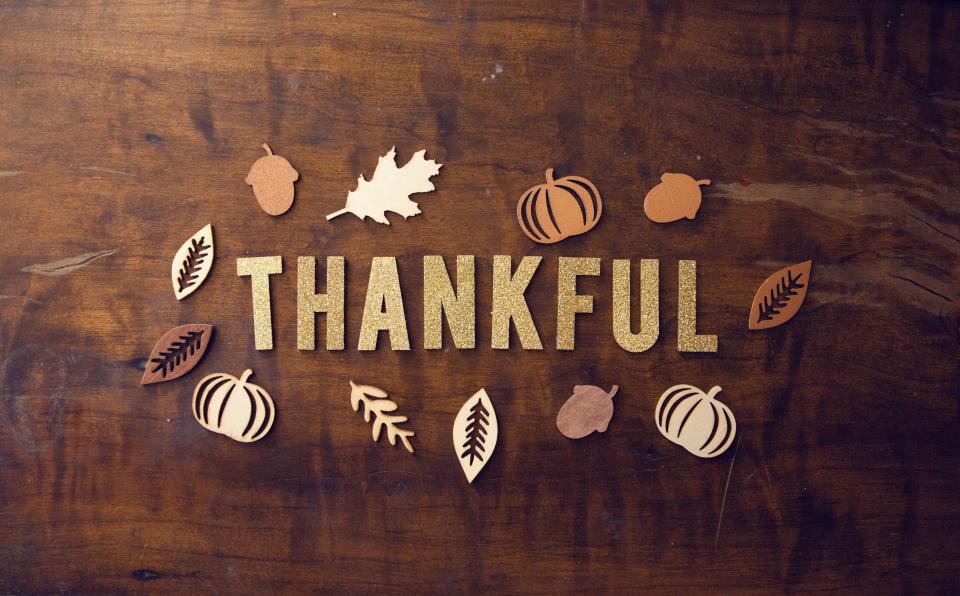As our American neighbours prepare to launch their festive season with Thanksgiving celebrations later this week, Adjunct Professor Andrew Witt, an American, shares some of the history surrounding his country's traditions, and concludes with a reminder that knowing the One to whom we give thanks matters.
As an American living in Canada, I am fortunate to be able to commemorate two seasons of Thanksgiving. There is one in October with my Canadian neighbours, and a second each November, which always makes me feel a bit of nostalgia—anticipation for snow, the gathering of family for a big meal, Christmas music, and big sales for the holiday season. Nationally, the holidays have also spurred on different traditions.
In the U.S., the sitting president each year will issue a Thanksgiving proclamation announcing the official day of Thanksgiving and include words of assessment and encouragement to the American people. While Presidents Washington, Adams, and Munroe each offered their own proclamations in the early years of the nation, it wasn’t until Lincoln’s moving Civil War proclamations that the annual tradition truly began. You can read every proclamation online, a fascinating exercise in the changing sentiments of American culture.
The holiday was not, originally, associated with early European settlers and their first “thanksgiving” meals with indigenous nations. Only in the 1930s, under President Hoover, was there a connection made to “the garnering of the first harvest by our forefathers in the New World.” By the time you get to Gerald Ford’s 1974 address, an exceptionalism, now familiar, had settled in: “[Since] the first Thanksgiving 353 years ago...we have grown into the mightiest, freest nation in human history….But the fundamental meaning of Thanksgiving still remains the same. It is a time when the differences of a diverse people are forgotten and all Americans join in giving thanks to God for...the blessings of freedom, opportunity and abundance that make America so unique.”
Replacing this exceptionalism, the 2016 Obama proclamation invites Americans to give thanks for contemporary Western virtues, that by common creed within great diversity we might have “enduring confidence in the power of faith, love, gratitude, and optimism,” forces of unity which have “sustained us as a people.” Replacing the call to divine thanksgiving normally found in such addresses, we find only an encouragement to “the people of the United States to join together—whether in our homes, places of worship, community centers, or any place of fellowship for friends and neighbors—and give thanks for all we have received in the past year, express appreciation to those whose lives enrich our own, and share our bounty with others.”
However one might analyze these changing cultural landscapes, what seems clear is that the proclamations give us a glimpse into the fundamental beliefs and ideas that have united a people together.
As part of the divine kingdom, the same is true of the Church; how we pray, for what we pray, and to whom we give thanks matter.
I pray that together we would recognize the hand of divine providence in causing the rain to fall on the just and the unjust, in giving seasons of plenty and drought, fire and flood, sunshine and snow; that the raw power and splendour of creation, and our infinite smallness within it, might remind us of the ineffable transcendence of God, while the life and breath of infants allow us to reflect on vulnerability and immanence of God in Jesus Christ.
May we give thanks to our God for the splendor of creation, the mystery of love, and the blessings of families, friends, and care which surround us; but more, may our faith blossom into good works, that our service and care would become the cause of thanksgiving for those without and in need. Amen.
**
During the coming semester, Dr. Witt will teach "Engaging with Old Testament Narrative: The Book of Chronicles." See a complete list of our Winter 2019 semester courses here.





